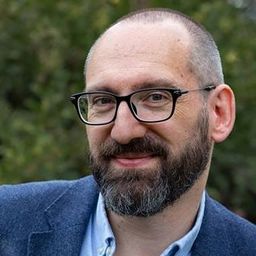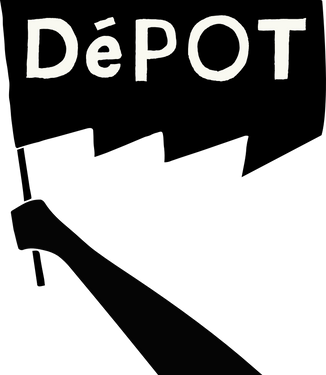
Laurent Sauvage
Laurent Sauvage est diplômé en histoire de l’art, en chant lyrique et en science politique. Son parcours professionnel l’a, dans un premier temps, amené à travailler avec le Palais des Beaux Arts de Lille (en tant que commissaire de l’exposition Lille au XVIIe siècle : des Archiducs au Roi-Soleil) puis au Musée de la Chartreuse de Douai (comme chargé de la régie et de la conservation préventive des collections). Par la suite, il a collaboré avec diverses institutions musicales françaises (opéras et festivals) avant d’entreprendre un doctorat en études urbaines.
Il s’intéresse à la mobilisation de la culture et du patrimoine comme moteurs de développement local et aux communs culturels. Dans le cadre de sa thèse, dirigée par Juan-Luis Klein et Diane-Gabrielle Tremblay, il examine l’apport des actions culturelles dans les quartiers de revitalisation urbaine intégrée à Montréal.
Par ailleurs, sous la direction de Lucie K. Morisset, il collabore à une étude, initialement commandée par l’OCDE, sur les impacts en termes de développement local des actions du Musée des Beaux-Arts de Montréal.
Sessions in which Laurent Sauvage participates
الجمعة 14 فبراير, 2020
Saint-Michel est un quartier profondément marqué par les stigmates de la désindustrialisation : stigmates sociaux pour une population largement défavorisée, stigmates physiques pour un quartier défiguré par la présence de deux carrières laissant de larges trous dans la trame urbaine. Face à cette situation, les acteurs locaux se sont engagés dans un processus de revitalisation urbaine intégrée et ont, très tôt, repéré les activités culturelles comme un moteur de transformation d...
الإثنين 29 أغسطس, 2022
Industrial heritage and photography have a close relationship. Photography is a source for industrial archaeology. It sheds light on the links between people, their tools, their machines and their workplaces. Once the industrial activity is over, photography is also a tool for documenting and studying the sites. But far beyond that, captured by artists capable of transcending common representations, conferring on industrial remains the ugliness of an era that was thought to be over, photog...
Sessions in which Laurent Sauvage attends
الأحد 28 أغسطس, 2022
Join the conference organisers and TICCIH board members for a welcome cocktail and some festive words of introduction, in the former forge of the École technique de Montréal, founded in 1909, now part of the Université du Québec à Montréal campus.
الإثنين 29 أغسطس, 2022
During the Industrial Revolution coal was the most important energy source for both homes and industries. At the time, coal mining created strong regional industrial identities and mentalities, as well as industrial images and imaginaries in the eyes and minds of external observers. Such identities and ideas of coal would go on to shape industrial landscapes and communities.The papers presented in this session investigate the social and economic changes that were triggered by ...
During the Industrial Revolution coal was the most important energy source for both homes and industries. At the time, coal mining created strong regional industrial identities and mentalities, as well as industrial images and imaginaries in the eyes and minds of external observers. Such identities and ideas of coal would go on to shape industrial landscapes and communities.The papers presented in this session investigate the social and economic changes that were triggered by ...
During the Industrial Revolution coal was the most important energy source for both homes and industries. At the time, coal mining created strong regional industrial identities and mentalities, as well as industrial images and imaginaries in the eyes and minds of external observers. Such identities and ideas of coal would go on to shape industrial landscapes and communities.The papers presented in this session investigate the social and economic changes that were triggered by ...
Si la vallée du canal de Lachine a été le berceau de l’industrialisation canadienne, la géographie industrielle métropolitaine ne s’y est pas confinée, peu s’en faut, Outre les grandes concentrations d’entreprises des quartiers centraux, elle est constituée des réseaux infrastructuraux, d’une douzaine de centrales hydroélectriques et des ensembles manufacturiers disséminés dans une quinzaine de petites villes aujourd’hui intégrées dans l’aire métropolitaine. La conférence proposera un surv...
الثّلاثاء 30 أغسطس, 2022
During the Industrial Revolution coal was the most important energy source for both homes and industries. At the time, coal mining created strong regional industrial identities and mentalities, as well as industrial images and imaginaries in the eyes and minds of external observers. Such identities and ideas of coal would go on to shape industrial landscapes and communities.The papers presented in this session investigate the s...
During the Industrial Revolution coal was the most important energy source for both homes and industries. At the time, coal mining created strong regional industrial identities and mentalities, as well as industrial images and imaginaries in the eyes and minds of external observers. Such identities and ideas of coal would go on to shape industrial landscapes and communities.The papers presented in this session investigate the s...
During this lunch break, you can come and discuss with the author about his most recent book.This is happening at the DePOT Table in the main hall of the conference. DePOT refers to the group "Deindustrialization and the Politics or our Time"; DePOT examines the historical roots and lived experience of deindustrialisation as well as the political responses to it. It is a SSHRC Partnership project consisting of 33 partner organizations and 24 co-applicants and collaborators from six ...
As a "continent” country, in which industrialization began as early as the 19th century, Canada has seen through deindustrialization and urban redevelopment, parts of this heritage have been either altered or destroyed. Yet, Canada still possesses a very significant industrial heritage. With Canada being a confederation, approaches to the protection and the safeguard of its industrial heritage differs throughout the provinces and territories of the country. The same is true of i...
Drawing on case studies from diverse social, cultural, and political contexts the papers in this session discuss the different responses to maintaining and assessing not only the physical sustainability of industrial heritage but also the sustainability of its social values and meaning.
الأربعاء 31 أغسطس, 2022
Examples from several continents, in Europe, South America, North America, Turkey, show strong continuity in the objectives that govern the reuse of industrial buildings, for example the concern to take into account the industrial heritage as a resource for urban and territorial development, or the close links that it has with culture, whether it is used to house cultural facilities or more simply to bear witness to the history and memory of the place. Increasingly, policies for the reuse ...
Examples from several continents, in Europe, South America, North America, Turkey, show strong continuity in the objectives that govern the reuse of industrial buildings, for example the concern to take into account the industrial heritage as a resource for urban and territorial development, or the close links that it has with culture, whether it is used to house cultural facilities or more simply to bear witness to the history and memory of the place. Increasingly, policies for the reuse ...
Les friches industrielles sont devenues des figures urbaines ordinaires et témoignent, dans les anciennes puissances industrielles mais aussi dans les pays du Sud, des transformations du tissu urbain ainsi que du fait qu’il y ait processus de qualification, déqualification et, parfois, requalification de ces lieux. Les transformations qui les caractérisent structurent aujourd’hui d’indéniables enjeux politiques, sociologiques, spatiaux et culturels.Dans le cadre de ce congrès dont l...
In this lecture, I would like to talk about deindustrialised communities, heritage and memory in the context of right-wing populism. Drawing on studies of memory and heritage, I argue that right-wing populists have cornered the market on talking about the past of deindustrialised communities. They have successfully misrepresented this rich and complex history to fuel rage, resentment, fear and reactionary nostalgia. Indeed, ‘the past’, and in particular the industr...
الخميس 1 سبتمبر, 2022
Examples from several continents, in Europe, South America, North America, Turkey, show strong continuity in the objectives that govern the reuse of industrial buildings, for example the concern to take into account the industrial heritage as a resource for urban and territorial development, or the close links that it has with culture, whether it is used to house cultural facilities or more simply to bear witness to the history and memory of the place. Increasingly, policies for the reuse ...
The proposed session will examine the unfolding relationship between industrial heritage and those left behind in adjoining deindustrialized working-class areas. The four papers seek to understand the socio-economic and political impact of recognizing the industrial past in the present. Two guiding questions will be asked. Can industrial heritage support those ‘left behind’ in deindustrialized areas where nothing, or very little, has filled the economic or cultural vacuum? Has industrial h...
This lecture will argue that the landscapes of industrial heritage that can be found in different parts of the world are directly related to the place-specific trajectories of deindustrialization. In other words: the different ways in which deindustrialization impacts on local communities has a direct bearing on the emergence of forms of industrial heritage. I will differentialte between deindustrialization paths and related industrial heritage regimes in a) Anglo-...
الجمعة 2 سبتمبر, 2022
In the refusal of people in communities abandoned by industrial capital to abandon their own places, we can read an implicit critique of the mobility and unaccountability of capital, raised by those who were once inside (however tenuously or uncomfortably) and now find themselves marginalized, “left behind.” The desire to catch up again, whether through attracting new investment or transvaluing abandoned sites as tourist attractions, makes this an essentially conservative critique that is ...




